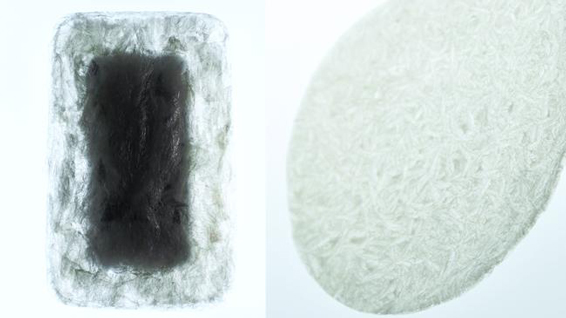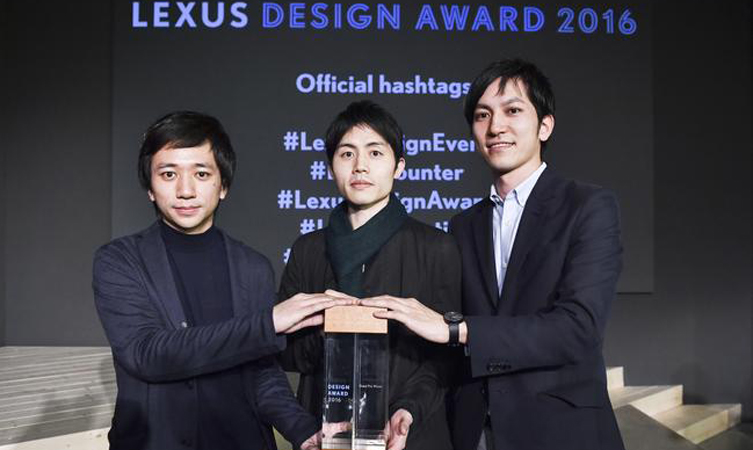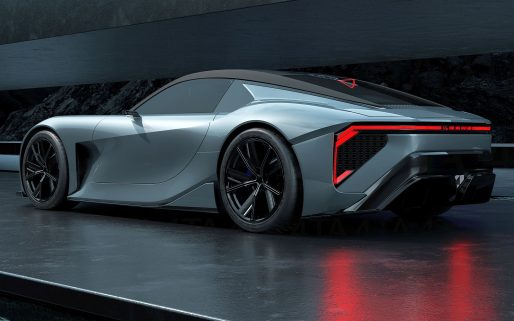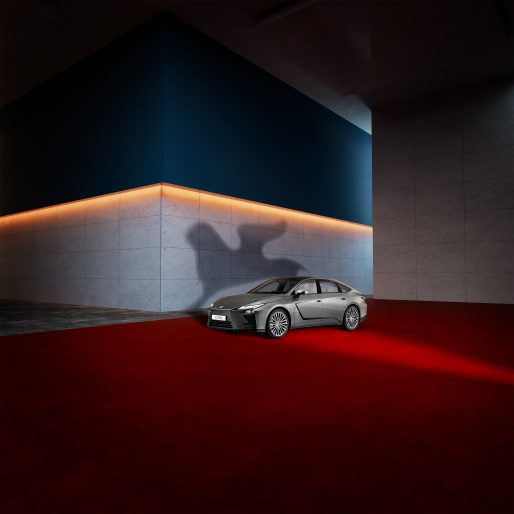The winner of the Lexus Design Award 2016 is the design group AMAM for Agar Plasticity, a project exploring how agar sourced from marine algae can be used as an environmentally friendly alternative to plastic for packaging materials.
The Japan-based group’s success was announced last night at the opening of Lexus’s presentation at Milan Design Week, An Encounter with Anticipation. The award was presented by Tokuo Fukuichi, President of Lexus International.
https://youtu.be/Oh2kkXldjG0
Alice Rawsthorn, a member of this year’s elite judging panel, said: “This is a bold and ambitious experiment, which aims to address one of the biggest pollution problems of our time. The designers have made tremendous progress during the course of the award cycle, particularly in devising a wide range of possible practical applications for the material. Their success in doing so gives us confidence in their ability to tackle the many challenges and complexities they will face in continuing the development of the project.”
AMAM was formed in 2015 by Kosuke Araki, Noriaki Maetani and Akira Muraoka, who were contemporaries studying at Tama Art University’s Product Design Department during same period. Araki (Design Products) and Maetani (Innovation Design Engineering) also undertook a master’s course at the Royal College of Art in London.
Agar Plasticity explained by AMAM
Seaweed-derived agar is traditionally consumed as food in Japan, and is used in scientific and medical applications worldwide. Sold in a dry state, it has a porous, feathery structure and is very light, despite its volume. We have taken notice of these features and have been exploring its potential for use as packaging material.

Goods are usually shipped wrapped in plastic materials that, once removed, become waste or are collected for recycling. Considering the raw materials and energy required for processing, this situation is undesirable.
Anticipating effective and sustainable use of natural resources has become more and more indispensable. Believing that biodegradable substitutes to plastics are needed, we took this opportunity to tackle a problem that is seemingly being ignored.
Agar can be extracted by boiling specific kinds of red algae and then dehydrating the soup it forms. Its resultant state depends on the dehydration methods and the types of red algae used. For a soft cushioning structure, it’s frozen; for a stiff, film-like state, it’s compressed.
Because agar is also mouldable, it was proposed not only as a cushioning material, but also as packaging material. We have also explored the possibility of an agar-derived plastic material. After use, agar products can be disposed of in an environmentally friendly way. It can serve as a material to improve the water-retention property of soil. Should it drift in the sea, it would not harm marine life.”
Lexus Design Award
The Lexus Design Award this year attracted 1,232 submissions from designers in 73 countries around the world, each exploring the theme of the Anticipation. From these, 12 finalists were chosen, with four selected for further project and prototype development with support from internationally successful designers. AMAM were mentored in their work by the product and furniture designer Max Lamb.
The work of the 12 finalists is included in this year’s Lexus presentation at Milan Design Week, on public view at the Spazio Lexus in Milan from today until 17 April.




